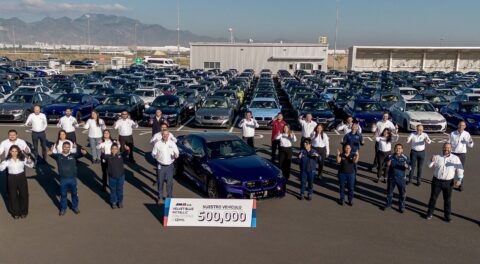Although BMW has managed to achieve decent growth in 2018 as far as unit sales are concerned, the worldwide and U.S. delivery figures we report on every month are not the same type of stellar numbers which have graced many of the past several years. Growth is always a good thing, but in today’s environment of analyst-driven price-share targets and quarterly forecasts, the data coming in for 2018 is leading more than a few financial outlets to take a rather dim outlook on the historically reliable profit machine that is the BMW Group.
There are plenty of reasons, and we’ve spent a good bit of time hashing at least a few of them out over the past months when it was time to report on sales data. Economic disputes continue to headline matters, and although demand still seems robust in a few different ways, there is no question that tariffs and other protectionist policies being enacted around the world are putting a drag on the auto industry as a whole. Uncertainty is the enemy of growth, and the world remains in an overextended bull market that may finally be starting to show signs of taking a natural and expected breather.
Altered emissions-testing in the wake of Volkswagen’s transgressions is also straining a number of manufacturers—including VW itself—and although BMW was ahead of schedule with their testing, and no delays were caused by the new procedures and requirements, associated costs and having to prematurely shorten the life of at least one or two well-known models both played in a role in adversely influencing profitability. Steep discounts of existing, pre-worldwide harmonized light-vehicles Test Procedure (WLTP) cars are also putting pressure on the sales of new models.
BMW isn’t to blame for the aforementioned global and industry-wide issues, but the automaker isn’t without its own quality and internal personnel problems. Recalls, warranty claims and an increase in component costs are also negatively influencing the books. Moreover, a few rather high-profile executives having been poached by competing automakers: Former M GmbH VP Albert Biermann’s moving to Kia and minority owner Hyundai occurred back in 2016, but fresh new performance-oriented models by the companies are proving to be stiff competition. Back in 2014, Herbert Diess, a long-time BMW executive and member of the board of management jumped ship to Volkswagen, where he has since risen to the top in the wake of Dieselgate. More recently, in 2018 Markus Duesmann, previously considered a potential successor to development chief Klaus Froehlich, left for Audi, which is trying to regain market share lost to the likes of Mercedes-Benz, BMW, and Tesla.

In the wake of it all, and even in the midst of a year that has seen continued growth and robust demand, BMW has been forced to adjust its traditionally trusted outlook. Revenues are now forecasted to be lower than 2017, when they were previously expected to experience a slight year-over-year increase. Group profits are also projected to decrease, after they were estimated to match the levels of last year, and most important, profitability, as measured in terms of earnings before interest and taxes (EBIT), is slated to come in at its lowest level since 2009, when the world was still in the depths of the Great Recession. Heavy investments in electrification and other industry-shaping tech are of course at play here, but other, previously inconsequential costs are also on the rise.
So besides issuing a warning in the form of lowered guidance, which expectedly caused shares to test their lowest price support level in a year at just over $30 per share, what is BMW doing about it? As of October, Dr. Andreas Wendt, a veteran whose résumé includes a decade spent at industry-leading component manufacturer Bosch before joining BMW in 2002, will be assuming leadership of purchasing, acquisition, and procurement operations via the BMW Board of Management position.
In his sixteen years at BMW, Dr. Wendt, a mechanical engineer by degree, has overseen operations at some of the group’s largest manufacturing facilities, including the sites located in Steyr, Austria, and Regensburg, Germany, before moving to largest of them all in Dingolfing. With his history of success, the supervisory board has placed a lot of trust in Wendt to lead the purchasing-and-supplier network. Interestingly enough, a few of the aforementioned names which have left BMW for VW previously held the same position.
Rumors of a potential shakeup of the sales structure are also circulating, and anonymous sources indicate that there has been a palpable amount of tension present in recent board meetings. No specifics about any broad changes being implemented have come to light so far, but an internal task group has been formed to assist board member and sales head Pieter Nota, who joined BMW after leaving electronics manufacturer Philips last year.
There’s no question that BMW is facing a lot of pressure right now. The company isn’t alone in the struggle, and has certainly navigated challenging straits before, but the only constant one can rely on within the business cycle and broader financial markets is change. With demand still allowing for a slight bit of growth and a host of fresh, new models hitting the market, we remain cautiously optimistic that BMW can maintain the necessary balance between profitability, reliability, and of course desirability.—Alex Tock
[Photos courtesy BMW Group.]





















